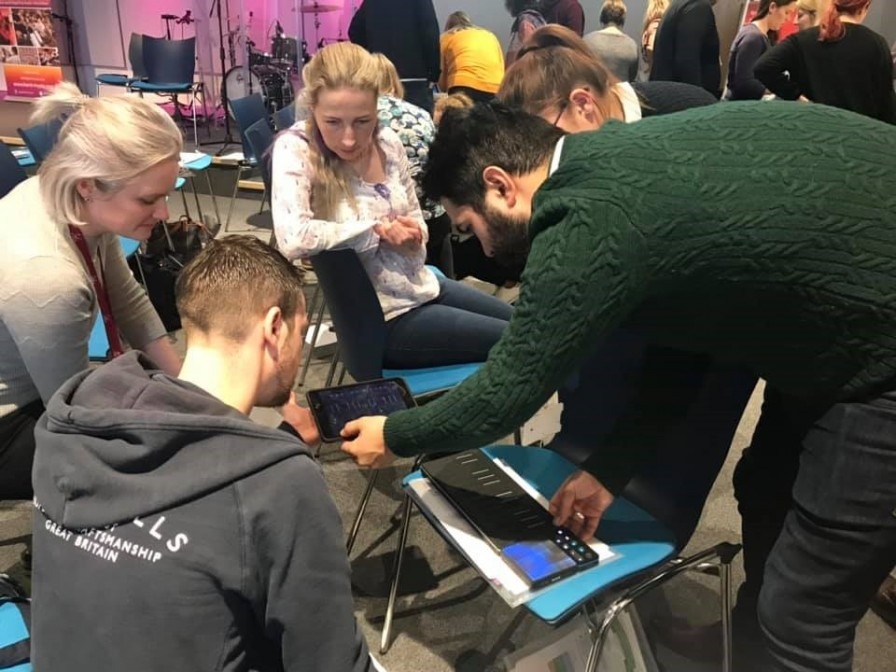The Inclusive Practitioner CME with Luke Crook

Luke Crook is Kent Music’s Education Manager (SEND) and as a part of the Southern Hubs Music Alliance’s AMIE work into workforce development, is enrolled on ‘The Inclusive Practitioner CME (Certificate in Music Education)’ delivered by Bristol Plays Music. Read on to find out why Luke resonated with this course, what he’s getting up to and how it’s going to impact both his work and the way Kent Music approach tuition.
“I’d been looking to do a CME for a number of years without success before discovering The Inclusive Practitioner CME. There are lots of great CME programmes available, but they were always tied to an age or key stage range, or a particular delivery method like peripatetic teaching which didn’t resonate with how I wanted to develop as a practitioner. Bristol’s course however, offered an opportunity to learn about inclusive practice and its application in a broad range of settings, which was just what I was after. Inclusion has always been a core element of my practice, from when I started as a community/professional musician and teacher to now, focusing on disability and music access. Not to mention, finding qualifications to back this style of work has been difficult, until now!
The CME itself, or Certificate in Music Education, is a Level 4 qualification developed by Trinity that at its core is about teaching music, but allows for specialisms to be woven into it by delivery partners, meaning that anyone who does it learns the same core principles but also no two courses are the same.
The main attraction for me was the opportunity to formalise my experiences into a qualification alongside learning some new skills and crucially, getting peer feedback on my practice and ideas. It can feel like a small world of community and inclusive practitioners sometimes, so the opportunity of meeting and learning with likeminded people was really attractive. Coupled with this, Bristol are doing some amazing work around inclusion at the moment through the National Centre for Inclusive Excellence, so the teaching is coming from a solid position of experience and knowledge.
I’m three sessions in now, covering induction, children and young people’s musical worlds and equality, diversity and inclusion. The best part for me, besides the teaching, is getting to meet a diverse group of practitioners at different stages in their journey. Breaks and lunches are spent discussing different music projects that we’re working on or sharing knowledge to support each other with projects being worked on outside of the CME. It’s great to not only get feedback about my current practice, but be provided with the space to develop new ideas to incorporate into my work, and also the training we deliver to our staff in inclusive practice and approaches for different young people and their needs. I’m excited to start sharing more about inclusive music practice in Kent, getting more practitioners and partners involved and creating a new, inclusive out of school programme in the new year so we can reach more and more young people with music.

